This is the transcript for a podcast episode. If you don't like all that annoying reading stuff, you can listen to it here!
You're So Yvain
This week on the Myths and Legends podcast, we’ll continue the story of Yvain, and see how he not only turns his horrible circumstances around to a huge advantage, but squanders it nearly immediately. He’ll end up going crazy, running around naked in the woods killing and eating raw meat - essentially going “full Gollum.” In the mythological creature of the week segment at the end of the show, we’ll talk about changlings, and how, by boiling water in egg shells, you can tell if your baby has been switched out for a troll.
This is the Myths and Legends podcast, episode 1B, You’re so Yvain
Previously
For these multi-part stories, I will start out the episode with a super-brief recap of the story so far. It’s likely that a week or longer has gone by between episodes, and this is just meant as a brief refresher. This is part two of the story and probably not the best place to jump in, so if you want to hear the story in its entirety, it starts on episode 1A.
Yvain is a knight of King Arthur’s court, the mythological king ruling from Camelot. His cousin was shamed by a knight years prior while investigating a magical fountain, and just told Yvain and the others about it when they were sitting around drinking after a feast. Arthur decreed that he would gather up his forces and pay this belligerent knight a visit. Yvain, however, wanted to avenge his cousin himself and leaves a full two weeks before Arthur’s forces. He picks a fight with the knight by pouring the water from the spring on a magical stone. After a long fight, he mortally wounds the knight, who he chases back to his castle. Eventually, he finds himself trapped, his horse dead, with an angry town and castle closing in on him.
Trapped
With half of his horse lifeless next to him, and the floor of the entryway slick with its blood, Yvain begins to panic. Gates had come down on both sides, and the entryway was bare except for one door behind him. He can hear noises in the surrounding town through one portcullis, and through the other he can see an imposing castle, no doubt full of knights like the one he just battled with. He knew that if mobs below didn’t tear him apart, he would only be preserved to die at the hand of the castle’s lord. There was one door behind him, and he scrambled to it, finding it locked. He backed up, and noticed a figure standing on the castle side of the gate. He instinctively drew his sword, but then relaxed. It was a beautiful woman.
She introduced herself as Lunette and told him that he needed to be quiet and act quickly, because the men of the castle were coming. She slipped off to the side out of view, and Yvain stood there dumbfounded for a few seconds until he heard a noise beside him. The woman had unlocked the door and motioned frantically for him to come in.
He went in and discovered it was a bedroom, possibly for whomever was on watch duty, and tried to flee through the door to castle’s interior, but the woman stopped him.
She told him that he had to stay there, because the whole castle had been alerted, and they would surely see him if he tried to leave now. Yvain asked her why she was helping him, because didn’t he just kill a knight from her castle? She replied that she knew who he was the moment she saw him, because she had seen him before. She had been to King Arthur’s court, and he was the only knight that treated her with any degree of respect. Because of this, she will demonstrate confusingly strong loyalty to him throughout this story.
She produced a ring from her pocket, and told Yvain that this would make him invisible. It’s effect, and I quote, would “be like the bark on wood, which covers it so that it cannot be seen. The ring must be worn with the stone clasped in the wearer’s palm,” and that way no one, no matter how wide he opened his eyes, would be able to see the wearer. Essentially it becomes as invisible as wood…hidden behind something else. This is actually the root of the common phrase still in use to this day that something hard to find is as “invisible as wood.” She told him that as long as he remained completely still on the bed, anyone searching the room would be unable to see him. He put on the ring, and, like wood, he was invisible.
Search for the Killer
Almost on cue the door from the castle burst open, and armed men poured into the room. Outside, townsfolk gathered beyond the portcullis, which was raised to allow them in to search. Since there was no other exit than either through the portcullis or through the door to the castle, they knew whoever killed the knight had to have been in there. They upended the whole room, but still could not see Yvain on the bed.
Outside in the castle’s courtyard, there was a horrible scream. The wife of the knight, the lady of the castle, had discovered her husband lying dead next to his horse. She was beside herself, and began tearing her clothes and ripping out her hair. Frantic and sobbing, she ran to join the search.
They dragged the knight’s body into the room, and, because this is apparently a thing, the wounds on the dead knight resumed bleeding. As anyone would in this situation, the searchers assumed that because the dead body bled, the killer was nearby. This, I am sure, is an investigatory technique still in practice today, but it didn’t help the searchers, of course, because Yvain remained invisible.
Love. Because Yvain is kind of a scumbag
Yvain, however, found himself focused on the sobbing, hysterical widow of the man he just killed. She cried out to God that she didn’t understand how anyone could best her husband, how he was a kind, caring, gentle, generous man who only wanted to protect his people. He didn’t deserve what happened.
When the bulk of the search party left the torn-apart room, Lunette came back. She said that there would be a funeral procession for the knight. Yvain asked who the knight was that he killed, and he learned that he was no mere knight, but the lord of the castle and the ruler of the surrounding lands. He was well-loved by his people, and Lunette told him that if Yvain, a strange knight, was found trying to sneak out of the castle at this time, he would be summarily executed. He only needed to wait a day or so, and then he could leave once things had died down.
Hours passed, nearly a day, and Yvain stayed in the safety of the room, still hidden by the ring. He found himself able to look out a small window, and was able to see the knight’s funeral procession. He watched the train of people mourning this great man. He was angry that they were burying, for no other reason than that all proof, anything he could take back to the mockers that said Yvain couldn’t avenge his cousin, would be buried with the knight. These feelings of anger were outweighed, though. He watched the lady of the castle, the widow of the man Yvain had killed, as she was grieving her husband, and was struck by how beautiful she was. He found himself falling in love with her.
When Lunette came back, she informed Yvain that it was safe for him to leave the room, and she could move him to a place where he could move around more freely while trying to figure out a way to get him safely out of the castle. When he made it safely to this other room, he mentioned that he saw the lady of the castle mourning today, and perhaps he didn’t want to leave after all. Lunette immediately picked up on the meaning, nodded, and said that she would see what she could do. She left him to tend to her duties in the castle.
Her duties, as it turned out were tending to the lady of the castle, as she was the woman’s personal servant. She found the lady weeping in her chamber, and actually chastised her boss for being so showy in her grief. Because her husband was just killed, and apparently she should just brush it off?
She wished aloud that God would bring her lady another husband. A better one. A comment over which her lady was understandably enraged. Lunette then reminds her that they heard King Arthur is coming to take their magical fountain from them, and none of their knights could defend it, as the best one is dead. If only she knew of a knight more powerful than the one that used to defend the fountain. In fact, Lunette implies, she might know someone like that. Someone far more worthy to be with her than her former husband. Her lady tells her to never mention this again, and tells her to leave.
An about-face
Though, later on in the night, in a truly facepalm-worthy moment, the lady thinks about it, about the compelling argument made, and realizes this mystery knight who killed her husband apparently never did her harm and never meant to. The next day, she calls Lunette back in and inquires about this knight she hinted at. Lunette tells her about Yvain, but says he is four days away. She says if Lunette will summon him, she will marry him. Four days pass with Yvain secretly getting ready in the castle. Lunette brings him clothes, he bathes each day, and at the end of the time, Lunette takes him the lady’s chamber acting as if he had just ridden a long way. The lady, however, is not fooled. She knows Yvain is the knight who killed her husband.
Yvain is nervous, but tells the lady that love has brought him here, and he is completely in her power. He feels that he did no wrong in killing her husband. In his mind, he was only defending himself…the fact that he knew the knight would attack him for messing with the fountain is conveniently omitted. She agrees, and absolves him of all problems. He tells her he loves her and agrees to be the one to rush out and guard the magical fountain, and she agrees to marry him.
I’ll try to avoid editorializing with these stories, but in a world that, so far, contains a creepy peasant watching over a field full of animals he controls and a magic spring, as well as giants, dragons, demons, and friendly lions to come, I find this marriage to be the most unbelievable part of this story. Her husband’s body is barely cold and she’s marrying his killer? From a modern perspective, this story is absolutely ridiculous.
I once had a professor of medieval literature talk about how if we were able to sit down and talk with someone from the middle ages, it would be like talking to a space alien. The time and culture were so radically different from what we know…the all-pervasive death and violence. For example, when this story was being passed around Europe, the Crusades were happening in Jerusalem and the Vikings were slaughtering monks in the north. It truly was a different world. And that’s something to consider when reading these stories.
That being said, I’ll keep commenting on the absolutely ridiculous parts of these stories, because the stories take themselves entirely too seriously.
Yvain, who started off as mildly interesting, has moved to being somewhat sinister. He killed her husband, and she is trapped into taking him as a husband because an army, his army, is approaching to take her fountain, and she needs someone to ride out and defend it. This whole story flows a lot better if you cast aside all the flowery Love language, dripping with sentimentality, and accept the marriage for what it was, Yvain and King Arthur essentially conquering this castle and taking ownership of the fountain, with a great deal of whitewashing with the courtly love theme to make it all a bit more palatable. I understand it was a different, more violent time, but I can’t accept from a literary perspective that this character who was tearing her hair out in anguish from her husband’s death would knowingly marry his killer, declaring herself in love with him.
They get married, and it is said that Yvain is loved by the people, who don’t know he’s the killer of their former lord. In fact, it’s said that the lady and her people love him so much that they completely forget about their former lord. Yvain had married his wife, taken his lands, and apparently earned the love of his people, all in retaliation for what the knight had sworn to do by defeating, but not killing, Calogrenant. It’s a bit of overkill. It’s as if someone makes a mean comment to someone else you know and you respond by blowing up their house seven years later.
The Guardian
Meanwhile, King Arthur had arrived at the fountain, and decided he really wanted to see what all the hubbub was, so he has Kay pour water on it and challenge the knight. Their new champion, Yvain, rides out and does battle with Kay, quickly de-horsing him without killing him, not sensing the irony of the situation. He revealed himself to be Yvain, put Kay in his place, and they all rode happily back to the castle. They accepted King Arthur now as a guest, instead of a conqueror, and his court stayed there for eight days.
Yvain was now completely victorious. He had avenged his cousin, and then some. He had a title, land, a beautiful wife, and had put the mocking Kay in his place. All he needed to do was look after his land, guard the magical fountain, and be a decent husband.
Leaving so soon
After a short talk with Gawain, another knight in King Arthur’s court, Yvain decides he will not look after his land, guard the fountain, and be a decent husband in the interest of going adventuring with his buddies. He needs to build his reputation, after all, because that’s truly what his wife will respect. If he doesn’t remain well known in the land, his wife’s love will quickly leave him, and he will be greatly shamed by allowing his marriage to deteriorate the great man he once was. He agrees, and asks his wife for a favor in private.
She agrees to grant him a favor, essentially trapping herself to agree to whatever he asks since she would otherwise go back on her word. He asks for leave to go adventuring, since if he doesn’t, his fellow knights will see him as a coward. She reluctantly agrees, on the condition that he be back in the castle one year later, or else he would lose her love forever. He laughs and says he will be back way before a year is up, because he loves her so much. She smiles and gives him another magic ring, the effect of which means he cannot be imprisoned, lose any blood, or have any ill befall him, because why not? He left later that day after being newly married for less than two weeks, tears streaming, vowing to be back in less than a year.
One year and one day later, scumbag Yvain is sitting around a bon fire in Camelot, thinking that he was forgetting something. The realization dawned on him when he saw a woman ride up on a dappled horse with a message for him. He was called a liar, deceiver, cheat, and a thief. She says the lady never wants to see him again, and demands that he give the ring back. He gave her the rings, and ran away sobbing like a toddler.
Man of the Wild
He kept going, but was dismayed by civilization, because it reminded him of what he had lost. He needed to go out in the wild, to be by himself. He is so distraught, and in an instant he has gone mad. He tears off his clothes, and insane Yvain is now wandering the wilds. He comes upon a youth out hunting with a bow and arrow, and he steals it from him. He lives in his madness, shooting animals and eating the meat raw.
Next Week
And this is where we’ll leave Yvain this week, who, by his own petulant selfishness, is absolutely worse off than when he started. Next week, we’ll conclude the story of Yvain with him being bailed out from his poor choices two more times by young women, but still claiming all the credit for himself. Because he’s the hero.
Creature of the Week
The mythological creature of the week is the slightly funny, but actually incredibly sad, Changeling. A changeling is not a creature itself, but rather one that has been swapped out for a human baby. In the middle ages, people thought that supernatural creatures like trolls, fairies, or elves, would come in the night and swap out the healthy human baby for their sickly baby. There are a range of reported motivations for doing this, from having the human baby eventually grow up to be a servant, or simply because the creatures liked human babies and wanted to have one. One particular belief was that trolls thought it was in vogue, or classy, to have their troll babies raised by humans, and therefore wanted to give their babies a human upbringing.
To keep this from happening, one could place iron near their baby as they slept at night, because at least in Scandinavian folklore, most mythological creatures were afraid of iron.
The ways to get your baby back from the trolls range from bizarre to downright tragic. One way to do it is to (somehow) cook an entire family meal in an eggshell. This will drive the Changeling baby to say, yes, say, “I’ve been alive for a hundred years, but I’ve never seen anything like this!” and vanish, leaving the human baby in his place. The sadder stories involve parents mistreating their babies in an attempt to get the trolls, who were apparently watching, to relent and return their healthy, happy baby. One especially horrific way to get the healthy baby back was inserting the supposed Changeling into a hot oven in an attempt to get the trolls to feel bad for their baby and intervene.
Sadly, this was a way the people at that time could try to understand things like birth defects and congenital disorders, ignorance or not, though, it is just plain horrible.

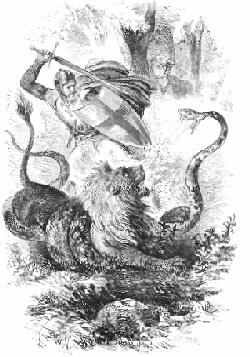
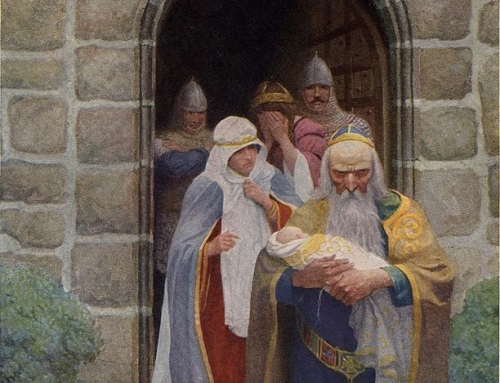
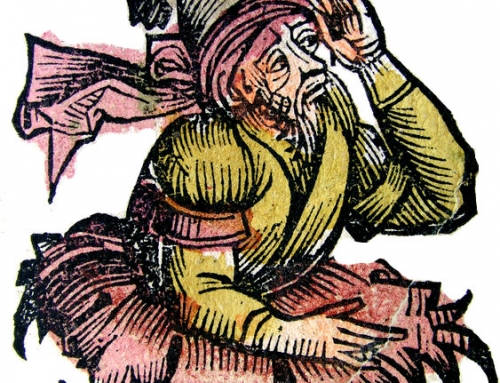

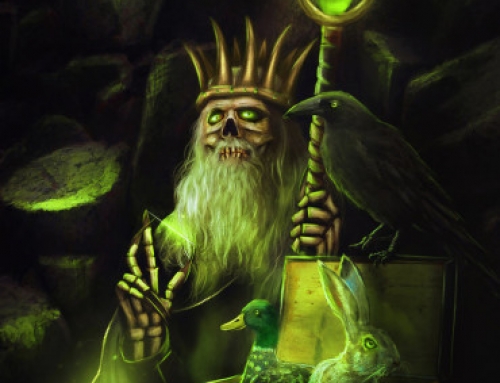
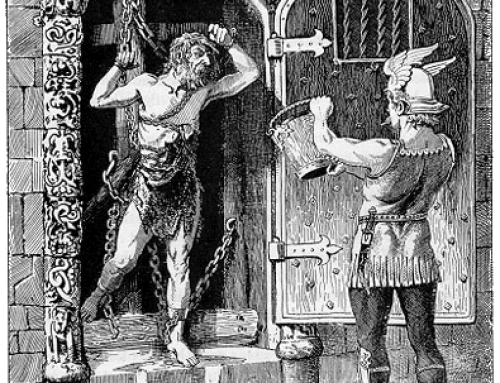
Leave A Comment